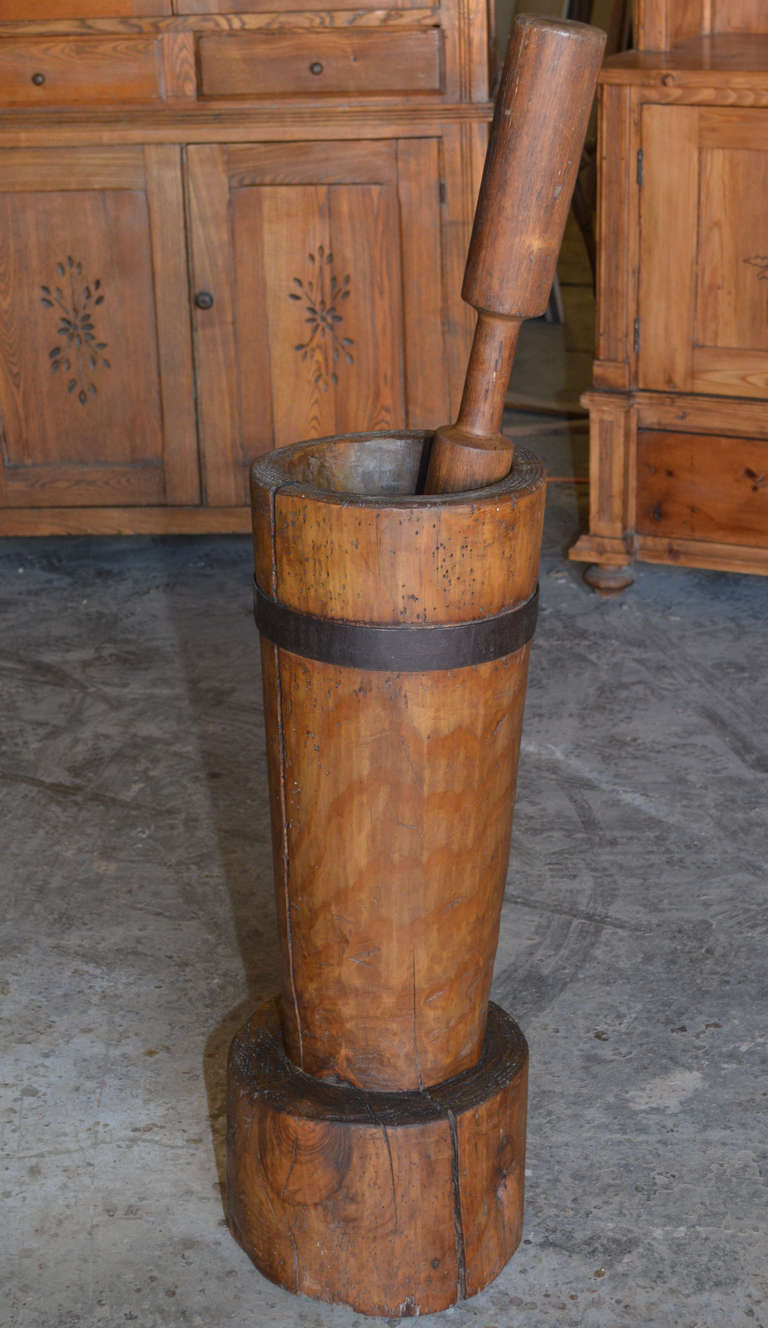Beitza 14a-b.
1- Our Gemara enlightens us as to the financial condition of Jews in Israel who were well to do in comparison to the Jews living in Bavel who lived in poverty. Consider: Meshulochim traveled to Israel……

This disparity manifests itself in a practical Halachah:
The rule is that crushing or chopping spices on Yom Tov is in principle permitted as long as one does the work on a limited basis; namely on a small scale for use at the next Yom Tov meal.
[Additionally, food items that lose some of their taste or aroma if they were to be ground before Yom Tov would also be permitted.]
This limits one to use a small crusher. Using a large one (although it may require less effort) is prohibited, for it is generally used for grinding large quantities for future use.

The Chachamim in Israel became aware that this leniency of using a small crusher/grinder in homes of the affluent Jews of Israel, where the kitchen staff was comprised of ‘servants’ (Jewish?), who would take the easy route by using a large grinder. The owners were obviously not aware of this.
Thus a law was passed is Israel: No crushing/grinding would be allowed, period. Neither small nor big utensils.

2- We moved on into the sugya of ‘borer‘, sifting, or choosing on Yom Tov where Beis Hillel allows the most basic ‘borer‘ – removing the bad from the good. Beis Shamai allows only choosing the good from the bad.
3- We discussed a case of a mound of peanut shells with a peanut in this stack. According to Beish Shamai one would be allowed to pick this peanut from the mound.
Now according to Beis Hillel can one opt to remove all the shells and end up with the peanut?
To be continued next week…
4- We ended with 2 interesting explanations on a perplexing verse in Parshas Lech Lecha.
וּמַלְכִּי-צֶדֶק מֶלֶךְ שָׁלֵם הוֹצִיא לֶחֶם וָיָיִן וְהוּא כֹהֵן לְאֵל עֶלְיוֹן.
– And Malki Tzedek King of Jerusalem presented (to Avrom) [after his victory in the war against the 4 kings] bread and wine, and he [Malki Tzedek] was a Kohen of G-D.

Rashi explains that the bread and wine offered by this King to Avrom was prophesying the future when the descendants of Avrom would bring offers of bread (Mincha) and wine in the Beis Hamikdosh.
We asked as to why the description of Malki Tzedek – King of Jerusalem and him being a Kohen – is interrupted by the act of bringing bread and wine?
A-The wine offering, which was poured into a crevice at the foot of the Mizbeach, was poured in its entirety.
On the other hand, a Mincha was only partly placed on the Mizbeach [the Kmitza] and the balance eaten by the Kohanim. So in a sense the wine offering is superior to the Mincha.
So why why is the bread (Mincha) mentioned first?
The answer is that a Mincha that is brought by a Kohen is completely placed and burned on the Mizbeach. No portion of it is eaten. Such a Mincha is equal to a wine offering.
So the end of the verse ‘and he [Malki Tzedek] was a Kohen of G-D’ is an explanation as to why the order is bread and then wine!
Here is how to read it now:
And Malki Tzedek King of Jerusalem presented to Avrom bread and wine, [why do we not mention the wine before the bread, because] and he [Malki Tzedek] was a Kohen of G-D.

2- This symbol of the bread and wine alluding to the descendants of Avrom that would bring offers of bread (Mincha) and wine in the Beis Hamikdosh is a bit problematic. If Avrom himself would be the Kohen he would be prohibited from working there since all warriors are perhaps prohibited from from doing any Avodah! This applies even killers BeShogeg.
Just as we find in regards to ‘du’chening’. A Kohen that caused a death, even unintentionally, is prohibited form blessing others. See here s50. See there if Teshuva helps to clear this issue.
We also mentioned the famous Takono by Rabeinu Gershon, Meor Hagola allowing Kohanim who had recanted their conversion to ‘Duchen’. See there s51.
So what is Malki Tzedek trying to tell Avrom? Your children can do the Avoda and not you????
Tosfos states that there is perhaps a way to allow a Kohen who took a life away to do the Avoda if he is the only Kohen around. If we were to not allow him, then the Avoda would not be performed. So Avrom could in theory be allowed to do the Avoda since at that time he was the only Jew and…..Kohen.
But that would be a cynical compliment- ‘Avrom, you can be a Kohen only when there is no one else’…….
So the Torah states, after the compliment given to Avrom (alluded to by the bread and wine), that Malki Tzedek himself was a Kohen! So now we have two Kohanim and nevertheless Avrom would be allowed to do the Avoda. (as an exception?)
Here is how to read it now:
And Malki Tzedek King of Jerusalem presented to Avrom bread and wine, [alluding that Avrom, despite being a warrior, can indeed be a Kohen, and not only as a last resort because there was no other Kohen. There was another Kohen, since] he [Malki Tzedek] was a Kohen of G-D.